Latest Updates
E&O Topic of the Month
Mon, 07/22/2024 - 10:18July is a prime time to enjoy Colorado's lakes and reservoirs. As all of us know recreating in these waters does come with risks. Here are several helpful tips to safely enjoy the many lakes Colorado has to offer:
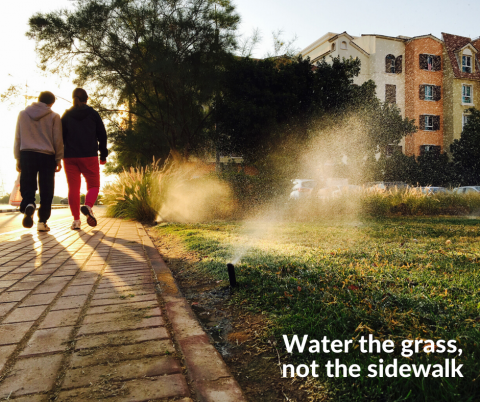
E&O Topic of the Month - Smart Water Use and Water Runoff
Thu, 05/30/2024 - 12:32Living in an arid climate like we do here in Colorado makes water efficiency and best management practices very important for residents and businesses. There are many ways to ensure water is being managed efficiently and we all play a part in these efforts. Here are a few ways to help save water around your house and workplace:
Tips for saving water and improving water quality outdoors:
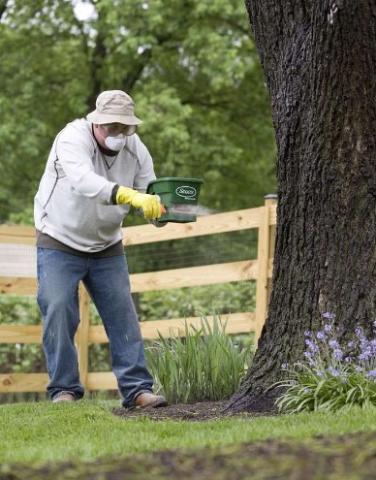
E&O Topic of the Month - Fertilizer Application Best Practices
Fri, 04/26/2024 - 10:07Did you know that using too much fertilizer can be harmful to the environment? Excess phosphorus and nitrogen flows from lawns into our local waterways and causes toxic algae growth that's harmful to people, pets, and aquatic life. To help protect water quality, it's important to read your fertilizer label and choose one without phosphorous.
Did you know that Colorado soils are often naturally high in phosphorous? Established lawns most likely do not need additional phosphorous. You can pick a phosphorous-free fertilizer to help protect water quality!
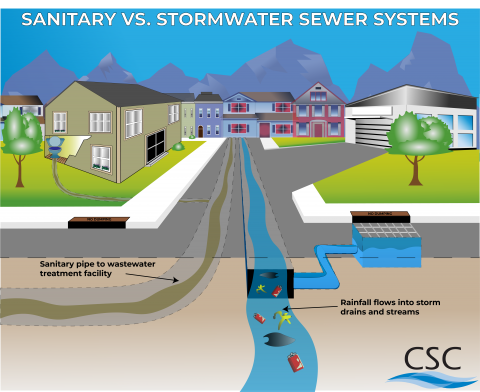
E&O Topic of the Month - Stormwater Awareness/Snowmelt
Fri, 03/29/2024 - 10:32With Spring officially here, we will start to see significant snow melt and potentially heavy rain storms. These storm events provide us a reminder to protect water quality! Rain and melting snow pick up litter, pesticides, fertilizers, and other pollutants from our homes and carry them into storm inlets which drain directly into local waterways without treatment.This is different from wastewater systems, which carry water from indoor drains in our homes, offices, and buildings to wastewater treatment plants before discharging to the local waterway.
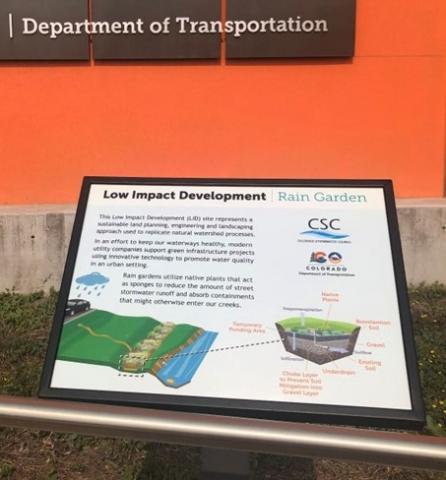
2023 Educational Campaign Report
Tue, 02/27/2024 - 16:18The Colorado Stormwater Councils shared Education and Outreach program includes social media, radio, TV, print, online and bus advertisements, and public service announcements. Thank you to all of our members and partners who make this possible through their contributions and collaboration. Without our combined effort, our communities would be much more limited on the number of different media options integrated into our education and outreach programs. This report is a summary of all educational campaigns for 2023.
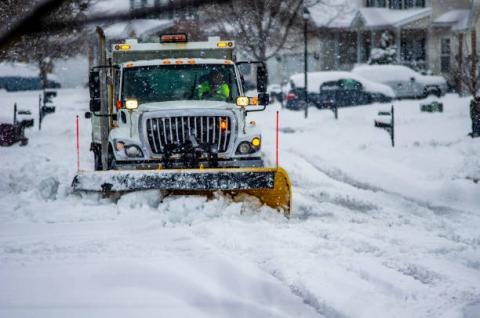
Deicer Best Management Practices
Wed, 12/13/2023 - 13:29
Winter weather brings with it deicer, salt, and sand application. This relates to our municipal operations as well as citizens within our municipalities. Here are some reminders for this season to help protect water quality.
Reminders for Municipal Staff:
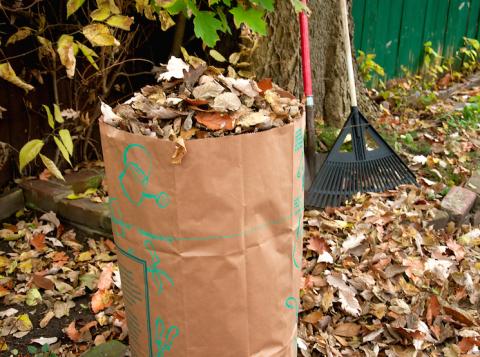
Where You Leave Your Leaves Matters!
Mon, 09/25/2023 - 10:29The amount of phosphorus in grass clippings generated from just one lawn mowing can produce up to 100 lbs. of unwanted algae if it ends up in our lakes and ponds. Leaf “litter” and landscape trash account for 56% of the phosphorus in urban stormwater, in addition to clogging storm drains and increasing debris in our streams and waterways.
Reusing, recycling, and composting your leaves keeps them from going to landfills, which helps the community meet zero waste and climate action goals, and can save community members money by avoiding extra charges on trash bills.
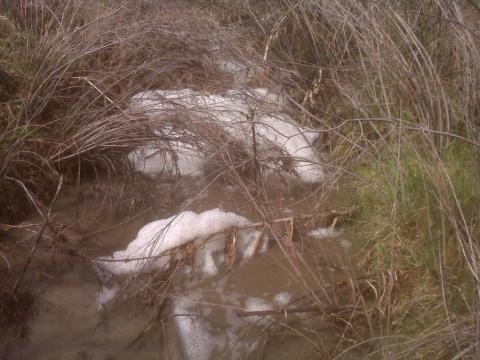
Foam in Waterways
Thu, 09/14/2023 - 09:52Where is the foam from?
It is common for organic matter naturally found in our waterways to decompose, releasing fatty molecules (lipids) that produce the foam we see on the surface of the water. This happens every year, usually during the spring runoff season, but it can also occur during periods of high precipitation and high temperatures in summer and fall months. The foam is most apparent at locations where the water is naturally agitated by flowing over rocks or discharging from pipes. The foam produced may be more than a foot deep!

How to Poop Anywhere Outside
Thu, 02/25/2021 - 16:03There’s an unwritten rule that all campfire conversations eventually lead to a round-robin of bathroom disaster stories.
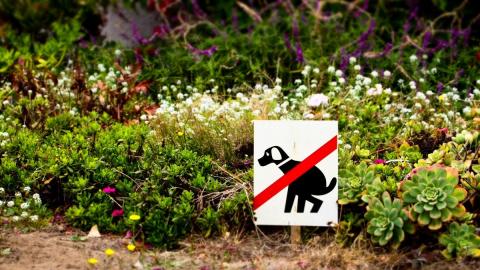
It’s Time to Talk About Dog Poop
Thu, 02/25/2021 - 15:58In the United States, pet dogs produce 21.2 billion pounds of poop each year. All that poop is polluting water sources, both in urban areas and the backcountry, largely because dog owners aren’t doing a good enough job picking it up. Let’s look at the reasons why dog poop has become such a problem, and examine what we can do about it.
Why Dog Poop Matters
Two reasons: There’s too much of it and it’s full of bacteria and parasites.
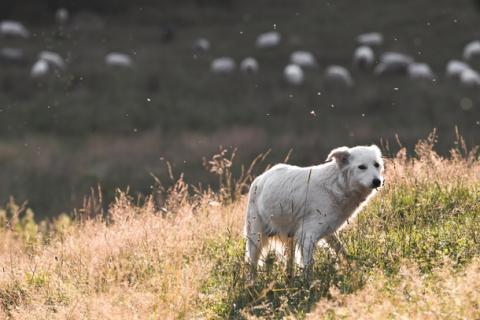
Leave No Poop Behind (Interview)
Thu, 02/25/2021 - 15:51Research shows that most dog owners pick up after their pets in the street and at the local park, but often don’t take along a plastic bag when out hiking in the backcountry, assuming it’s no big deal. But Wes Siler, a contributing editor to Outside Magazine, tells host Steve Curwood that all that dog poop does add up to potential harm by introducing foreign bacteria and nutrients to forests, fields, and streams.
Transcript
[SOUNDS OF BARKING AND PLAYING DOGS]
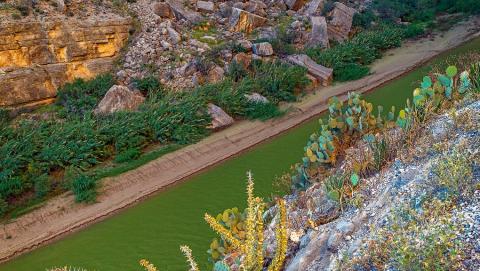
Scientists don't know why one-third of U.S. rivers have turned yellow or green
Thu, 02/25/2021 - 15:46Satellite images of rivers across the U.S. have revealed a troubling color-changing trend: Over the past three decades, one-third of formerly blue rivers have turned a shade of yellow or green. The discovery comes after an analysis of nearly 235,000 images taken from 1984 to 2018. Amongst the rivers that changed color, 56 percent were mostly yellow and 38 percent were mostly green.

Recycled Plastic Roads Pave the Way to More sustainable Infrastructure
Thu, 02/25/2021 - 15:38It’s not often you can help solve two of the world’s problems with a single solution. Dutch startup PlasticRoad, however, is doing just that. To tackle both plastic pollution and climate change, the company is producing the next generation of sustainable infrastructure: roads made out of recycled plastic.
Culvert Lining Training
Mon, 11/30/2020 - 14:33Develops an understanding for how to correctly assess damaged and failing storm system infrastructure as well as provides guidance for inspection and lining projects

Water-Saving Technology You Should Care About
Mon, 09/28/2020 - 10:32Did you know 70% of the Earth’s surface is covered with water, but only 1% of that is available for humans to use?
The pace of our global society is moving too fast for water to fulfill its potential as a renewable resource. We have made fresh water into a finite resource. Water resources, like groundwater, are being depleted because they aren’t able to recharge at the same rate of our growing population and increased agricultural activity. Basically, we consume water at a highly unsustainable and concerning rate.